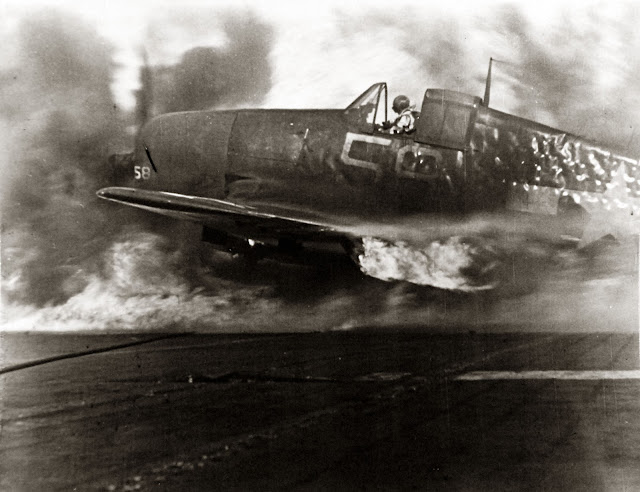"These five 96th Div. Texans are considered "aces" by their buddies in Co. I, 383rd Inf. Regt., an ace being anyone who has killed five or more Japs. From bottom to top: S/Sgt. Vernon Z. Wilkins, 101 Chicago St., Delhart; Pfc. Albert Welfel, El Campo; Pfc. Richard S. Groce, 318 Lafitte St., San Antonio; PFC Roy D Clepper, Florey; and Pfc. Russell Linnard, of Pharr, Texas. 30 June, 1945. Company I, 383rd Infantry Regiment, 96th Infantry Division." I wonder what their lives were like after the war.
Today in World War II History—June 30, 1940 & 1945: 80 Years Ago—June 30, 1945: In the Philippines, Luzon is declared secure. Organized Japanese resistance ends on Mindanao in the Philippines.
Sarah Sundin's blog.
Indeed, some Japanese troops would hold out on the Philippines on an individual basis for decades.
" Jap tankette knocked out in battle for Shuri. Tank is about 10 ft. by four and about five feet in height, and carries two men. Relative size is shown by Lt. M. A. Miller of 94 Parkway Rd., Bronxville, New York. 30 June, 1945. Photographer: Henderson, 3240th Signal Photo Det." Tankettes were a British concept from between the wars, but had fallen out of favor almost everywhere before World War Two. Japan, which existed in military isolation, kept them.
American forces on Okinawa completed a week of mop-up operations in which 8,975 Japanese were reported killed and 2,902 captured, showing how intense operations remained.
While not apparent to anyone yet, the U.S. Army and Marine Corps had effectively concluded the main part of their ground fighting in the war. Ground combat, however, carried on for the British and Dominion armies, and the Chinese Army.
Former U.S. Army Air Force base Liuzhou, China, was recaptured by the Chinese. They also took Chungchin on the Indochinese border.
The French the 5e REI, a Foreign Legion regiment which had been stationed in Indochina, was deactivated, having been decimated in their retreat into China.
Truman appointed James F. Byrnes to be Secretary of State.
Last edition:












